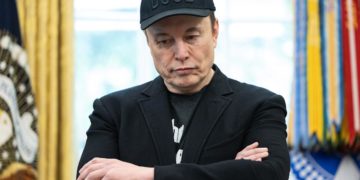Republican congressman Green to resign after tax bill vote
WASHINGTON (Reuters) -Republican U.S. House Representative Mark Green said on Monday that he will resign from Congress to take up...
Blake Lively Speaks Out in Emotional Statement After Justin Baldoni Lawsuit Is ‘Defeated’: ‘I’ve Felt the Pain’
NEED TO KNOWBlake Lively shared a message on Instagram June 9 to speak out after Justin Baldoni's $400 million lawsuit...
Kennedy dismisses entire US CDC vaccine panel, replacing all 17 members
By Ahmed Aboulenein, Michael Erman and Julie SteenhuysenWASHINGTON (Reuters) -Health Secretary Robert F. Kennedy Jr. has fired all members sitting...
Marines will be deployed to LA to respond to immigration protests
LOS ANGELES (AP) — The Pentagon planned to deploy about 700 Marines to Los Angeles on Monday to help National...
‘He’s in literally everything else’
Pedro Pascal may have been brutally dispatched from The Last of Us, but at least he's, in the words of...
IAEA chief relays Iran warning against Israeli strikes on nuclear facilities
CAIRO (Reuters) -International Atomic Energy Agency (IAEA) chief Rafael Grossi said Iranians warned him that an Israel strike on the...
Judge blocks administration from enforcing anti-diversity and anti-transgender executive orders
SAN FRANCISCO (AP) — A federal judge in California has blocked the Trump administration from enforcing anti-diversity and anti-transgender executive...
Justin Baldoni’s $400 Million Countersuit Against Blake Lively and Ryan Reynolds Dismissed by Judge
NEED TO KNOWJustin Baldoni's $400 million countersuit against Blake Lively, Ryan Reynolds and other parties was dismissed by the judge...
Tropical Storm Barbara becomes a hurricane
MIAMI (AP) — Tropical Storm Barbara has strengthened into a hurricane, the first of the eastern Pacific hurricane season.The National...
Noem praised Trump for sending National Guard. She opposed it when Biden considered it.
WASHINGTON – As South Dakota governor in February 2024, Kristi Noem threatened then-President Joe Biden when Democrats said he should...















